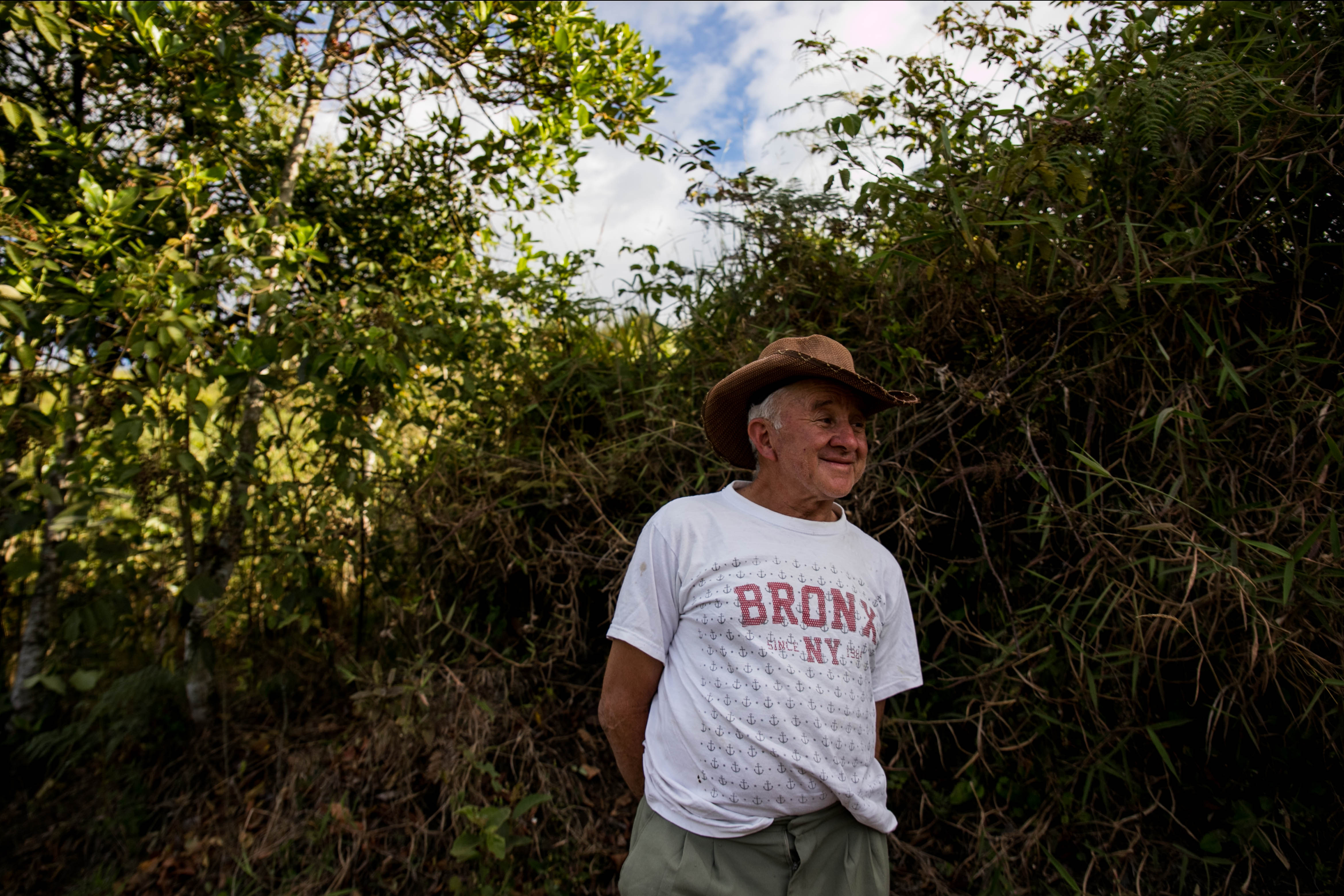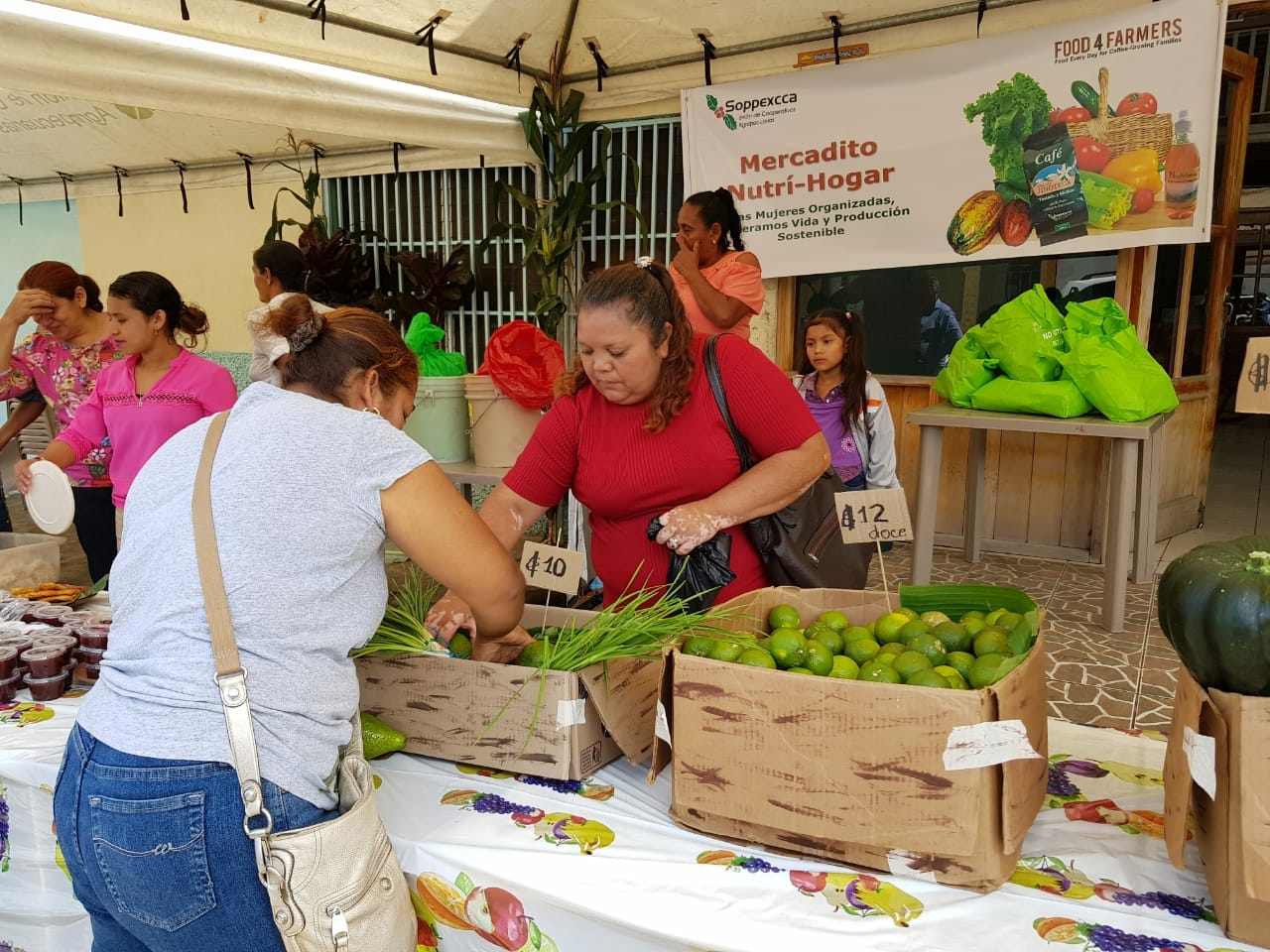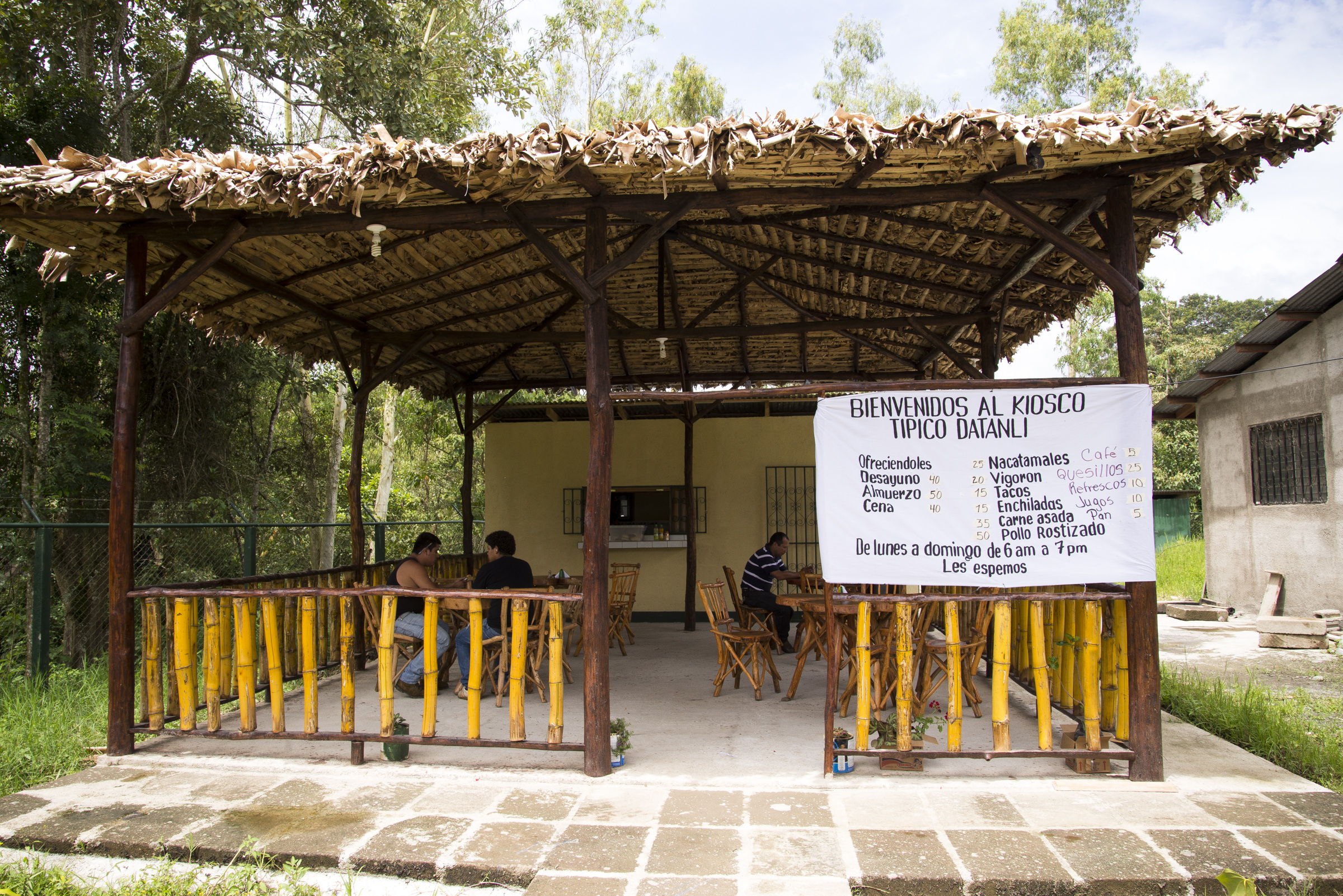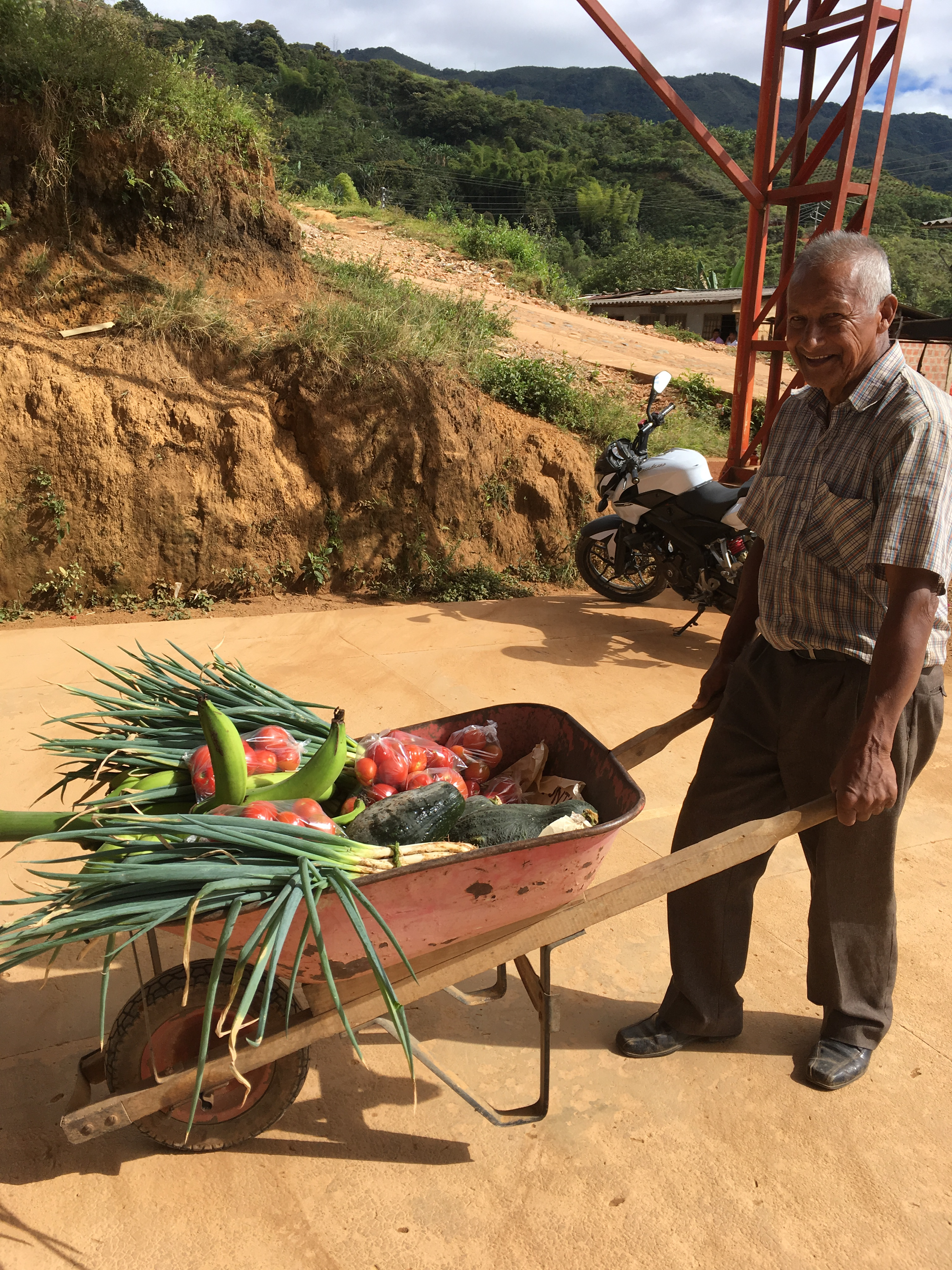Never before has a crop stolen the hearts of the masses quite as aggressively as coffee. A bold statement, sure, but worth exploring as we savor this month’s Act for All Coffee: TransFARMation Blend — a washed Latin American blend of sweet and sultry Guatemalan and Colombian beans that directly supports Food 4 Farmers, the non-profit helping to set the table for many coffee families across South and Central America.
Coffee production continues to climb as the world collectively adopts the lifestyles surrounding coffee, and the industry as a whole takes a shape of its own. As a crop, coffee is both a provider and a source of depletion, lending to an imbalance on the farmstead. It seems like the more we embrace coffee, the further it drifts from origin, and the voices and people responsible for the product are lost in the excitement. In many ways, coffee is the problem and the solution. But, how can we support a push-pull model in a way that’s prolific and everlasting?

In December of 2020, the United States Department of Agriculture issued its annual report on coffee trade and global market figures. The data covered obvious setbacks from Covid-19 and climate change, but it also projected rhythms for this year’s market, with a follow-up summary slated for June 18, 2021. The numbers explain a bounce back for countries like Brazil and Honduras, who felt a dry spell with a late rainy season and a pandemic that pushed an entire workforce into quarantine. Looking ahead, the report also detailed growth in other countries like Colombia, which is expected to enjoy a 12 percent increase in 2021 for coffee consumption.
Good news aside, what we really want to look at is what these numbers mean for farmers and their surrounding communities. The sharp reality is that coffee farming is hard work, to say the least, and many family owned operations in Latin America suffer insurmountable hardships due to a lack of resources and strenuous work conditions. A scarcity of reliable food, for instance.
Janice Nadworny is the co-founder and Director of Development for Food 4 Farmers, and after spending years around economic stadiums like Wall Street, she developed an appreciation for the quad-shot power of coffee on a global stage. In 2011, she introduced F4F alongside co-founder Marcela Pino, both of whom worked with Grounds for Health and the University of Vermont.
The partnerships that F4F maintains in Latin America can seem worlds away from Vermont, but these two regions face similar obstacles and enjoy much of the same loyalty from their communities.
“In Vermont, we’ve seen the devastating effects that commodity farming and little pricing power have had over the years,” Nadworny explained, “but farmers here have devised ways to survive and thrive, and with support and research they’ve transformed their farmland into thriving economic and food hubs.”

Vermont is a farming state that demands quality products from its people, and everything from maple syrup to pickled vegetables receives the farm-fresh seal of approval. “We have a lot in common with coffee-farming communities,” she said, “with much of the same potential.”
Though F4F upholds a standard batch of actions to curb such struggles on Latin American farms, a straight stencil does not exist. Each situation differs depending on the size of the partnership, the needs of the farms, the families, the regional disparities, unique biospheres, and countless other traits to consider. Nadworny and Pino’s team approach each project from a subjective stance, working closely with community leaders and learning of their needs and goals for growth and sustainability. In this context, sustainable living refers to reliable food and generational progress on family owned farms. These are large hurdles to hike, but often achieved through diversifying farmland economies and teaching families how to manage them on their own.
“We bring in as many voices as possible to develop diversification strategies,” Nadworny said, “but specific methods, like beekeeping for income or a women’s farmer’s market, will differ from place to place.”
Coloring a farm’s economy can be as simple as introducing polycultures to existing crops in order to promote more complex systems and thus, more income, or it can involve developing young people and women for leadership roles. The takeaway is that coffee alone is not enough to sustain food security, since coffee as a crop demands so much land and attention that it often prevents families from pursuing additional livelihoods, and, in many cases, skirting the edge of poverty.
And while sustainability on this front points more towards essential needs and quality of life, the vitality of the soil is never overlooked during the process. “Indigenous communities have been living in harmony with nature for millennia,” Nadworny said, “and the rest of us are coming around to understand what they’ve always known; that everything is connected, so we’d better take care of our planet.”
It’s possible that farming, as an industry, was already on the brink of renaissance before the pandemic, but a known reality is that Covid-19 disrupted so much of the traditional fabrics that farmers were wrapped in previously that today’s industry demands a realignment for tomorrow’s workforce. The old ways will stay, like the lessons we’ve learned from our Indigenous communities, but a shift in what farming can provide will hopefully outline a more positive future for generations to come.
Pino believes a pivotal perspective inward will benefit coffee farmers down the road, as much of the pandemic revealed where the support truly lives: on the homestead. “We’re seeing a focus on shorter growing cycles and on localized, community food systems,” Pino explained. “The shortages everyone experienced during the pandemic taught some important lessons, and it’s shifting the way farmers use and value their land.”
Pino highlights the importance of farmers growing food for themselves and for their local markets, while reserving specialty commodities like coffee or honey for export. “As climate change causes future disruptions, we think local markets will become even more important and lucrative for small-scale coffee farming families,” she said.
Figuring out the ways in which a family owned farm can diversify their own economy and therefore supply a stronger, healthier operation ensures not only the immediate, foreseeable future but also the longevity (and legacy) of the family name.
A prickling truth about family run businesses in Latin America is a fast-fading workforce. Basically, young people don’t want the baton and continue to seek success in more reliable industries. The migration to greener pastures is inevitable, considering the low trade-offs in working a coffee farm today. Part of F4F’s work aims to inspire young people to champion their farms and stunt the challenges of status and taxing workloads.
“A big difference between the United States and Latin America is that in the coffee lands, rural areas are not as developed, with poor infrastructure and lack of paved roads,” Pino explained. “These circumstances, along with climate change and common political upheavals, make farming a challenging and risky endeavor.”

Young people recognize the sacrifices they would have to make in absorbing the family business. How can we expect the youth of today to choose between their own path and the insecurities that come with devotion to one’s family? “If people could earn enough from their coffee crop, then we’d see more movement back to the farm,” Pino said.
F4F incorporates education for young people into their programs and partnerships in order to show them how diversifying the crop count will expand income and provide alternative careers aside from coffee.
“Until young people have the opportunity for decent livelihoods in growing coffee, they’ll continue to leave the farm,” Nadworny said. “We’re working around the issue by helping to diversify the farms so they can grow and access healthy food, spend less of their limited income buying it, and develop other sources of income so they don’t depend entirely on coffee.”
As to be expected, many young people also crave the delicacies of life outside of their rural upbringings, like quality education. According to Pino, farmers and other “campesinos” may be viewed as lower class next to people with office jobs or small-business owners. When you couple this with exhausting labor given to an unforgiving climate, it’s difficult to blame the youth for skipping town.
However, it is a blurry subject, because tending to the coffee lands is also a source of pride. “These young people are proud of who they are and the hard work of their families,” Pino said. “The development of local economies can help the next generation stay on their land and develop other sources of income for their livelihoods.”
Back in the states, a few faces have already set the bar for cultivating meaningful change in these coffee farms. This month’s Act for All Coffee TransFARMation Blend is made possible by Sparrows Coffee, located in Grand Rapids, Michigan.
Frankie Volkema, the 13-year-old entrepreneur who started Joven Coffee under her family’s roaster, understands the massive influence that young people have on the future of coffee, and her Joven label seeks to champion young farmers under the age of 35. These types of initiatives are vital in the US, where we actually have the resources to facilitate change more rapidly.
With novel approaches like Joven backed by leaders like Volkema, Americans are doing their part (of a much larger whole) to keep things afloat. Likewise, Nadworny wants to see more effort from the adults of the business; the ones owning, marketing, and roasting their own coffee.
“Every business, large or small, can make coffee producers part of their brand,” she said. “Putting the people who grow high-quality coffee front and center in this way informs consumers about the real costs of growing coffee.”

Nadworny believes that sharing more of the profits with the farming communities would eliminate the need for philanthropy so that farmers become equal, if not leading, members of the industry.
Apart from greater engagement from coffee consumers, should we expect the same from government agencies? To some degree, having more government policy at origin that supports higher coffee prices and connects producers to national and international markets would have significant impact. But, as we’ve discussed before, sustainable communities are born out of local unity.
“The issue of seasonal hunger can’t be resolved by giving farmers food, but rather helping them grow it,” Pino said. “Our approach focuses on education and behavioral change, with less reliance on government aid.”
With this in mind, roasters in the US could source partnerships with local organizations like F4F that can aid in the process of full independence. “Ever since I started working in coffee, I’ve been recommending that larger coffee companies focus on working with national governments to develop organizations like the National Federation of Coffee Growers in Colombia,” Pino explained. “These organizations bring technical assistance and other resources to farmers, resulting in better production.”
We are nothing without our farmers. The coffee industry would not exist without these families, and it’s important to understand the realities that do exist for them on a regular basis. A struggle for reliable food means so much more than putting food on the table, and it’s a delicate rehabilitation process that requires multiple moving parts in order to function effectively.
F4F inspires growth through their collaborations in Latin America in ways that teach families and farmers to incorporate a variety of crops on their lands, leading to a diverse economy on a much smaller, but highly impactful scale. On the receiving end, we can follow the examples of Joven Coffee and make stronger efforts to illuminate the producers.
Our love for coffee is eternal, but we need to foster a transFARMation in order to support our farmers and keep the brews flowing.

Sparrows Act for All Coffee: TransFARMation Blend
$2 from every Act for All Coffee sold benefits Food 4 Farmers.









